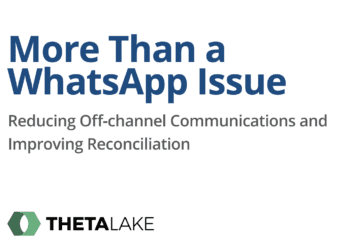What happens when a backlog of COVID-related claims meets a mountain of faulty, false or missing data? Payers don’t pay on time — or at all. Here’s how the pandemic is impacting the health care industry’s chronic struggle with manual reviews.
Most states can levy huge, frequently multimillion-dollar, sanctions on health care payers that do not reimburse provider claims within the prompt-payment window. Although payers regularly struggle with this issue, COVID-19 has caused heightened sensitivity. As more and more claims fall out of the auto-adjudication process and into manual review work queues, the backlog of pending claims and the potential for inaccurate and/or late payments keeps increasing.
Low-quality provider information has long afflicted the health care industry and is one of the main contributors of claims dropping to manual review. Pre-pandemic, an average of 20 to 30 percent of claims fell out of the auto-adjudication process, resulting in the need for manual review. An estimated 25 percent of claims falling to manual review, according to research conducted by LexisNexis, are the result of issues related to provider data quality, including incorrect, inconsistent, incomplete, duplicate or missing provider information.
The Many Challenges of Keeping Health Care Data Up to Date
Provider data includes demographic information such as address, phone number, specialties, office hours and new patient acceptance. It also includes configured provider payment terms like network participation, timely filing requirements, affiliations, discounts/sequestration, uniform rate increases and payment rates and terms. Maintaining the integrity of data significantly impacts both providers and members, including their satisfaction. COVID-19 updates have complicated the management of provider data due to the focus on expedited credentialing of roster additions, as well as the ability for providers to work across state lines.
Organizing provider information, confirming accuracy and maintaining rosters for ever-changing provider groups requires high-touch and consistent communication across multiple parties, both internal and external. Based on research conducted by LexisNexis linked above, an estimated 2 to 2.5 percent of provider demographic data changes monthly, not including other attributes, such as credentialing or affiliations.
Provider data management (PDM) is a highly manual and repetitive process that involves thousands of providers and piecing together the health plan’s network across multiple payer systems. The latter includes provider data management, credentialing, adjudication and the provider directory. As long as PDM continues to be managed through manual processes, exposure to the time-consuming and error-prone process will continue.
Payers’ outdated and inefficient systems rely on a fragile ecosystem of inputs: provider contacts, ever-changing provider alliances, frequently updated physician rosters and regularly revised credentialing data, on top of standard coding logic, payment policy updates and changes in member benefits. When membership shifts geographies or when behaviors shift (like in a pandemic), payers are exposed to changes in their provider networks, causing beyond-normal influxes in PDM updates, whether it be the addition of new providers or changes to billing or rendering information for existing providers. Provider claims that do not mirror the payer’s provider setup typically pend until either the provider onboarding/updating process is complete or the claim is manually reviewed for payment.
Reducing Sanctions Is Critical for Payers
Payers have a responsibility to reimburse claims within the prompt-payment time frames and any delay in reimbursing the provider results in owed interest. Incorrectly paid or denied claims result in sanctions on top of any owed interest. Additionally, sanctions may be levied when incorrect provider information is notated in the provider directory, such as participation, location, specialty or new patient acceptance. The sanctions (commonly referred to “penalties and interest” or “P&I”) have historically amounted to meaningful sums for payers. In many states, delays due to failure to submit accurate data on time can result in significant penalties.
Impact of COVID-19
While most states enabled payers to extend their timely filing deadlines during the pandemic period, health plans continue to be faced with constant updates to provider data. Provider groups are pressured to react to the needs in their local market. Front-line providers are facing urgency and increasing pressure on payers to reimburse promptly, or even ahead of schedule, to ensure their practices have a consistent cash flow during social distancing orders. Providers continue to incentivize staff by offering hazard pay to their health care professionals under these higher risk conditions while looking for ways to accelerate payments from payers.
In order to ensure member access to care, Centers for Medicaid and Medicare Services and state regulators were updating benefits and coding requirements multiple times a week. While this has slowed since the early onset of the pandemic, benefits have been expanded to allow certain provider specialties and places of service the ability to render specific services. New physician affiliations are enabling health care professionals to quickly meet local demands. These changes mean that payer configuration teams must react, update information and, in some cases, create novel payment structures that will exist only during the pandemic.
Pre-pandemic, an estimated 20 to 60 percent of provider online directories were inaccurate. For technology-enabled members, this could mean the difference between spending a few minutes to set up an appointment and spending an afternoon trying to access an available participating provider. During COVID-19, payers don’t want to be a hurdle in the delivery of care by either inadvertently sending a member to an out-of-network provider who is listed in the directory (resulting in higher member cost-sharing) or sending a member to an in-network provider that’s incorrectly configured in the adjudication system (resulting in payment delays, inaccurate payments, higher appeals volumes and increased administrative burden, among other issues).
Automation Has the Potential to Mitigate Payment Window Violations
In an ideal world with technology-driven automation, payers would make provider data changes and process claims without human intervention. During this pandemic period, health payer teams that typically manage provider data are likely working from home. Household challenges, connection issues and meeting distractions pose greater risk of manual error and reduced turnaround times, making the estimated 20 to 40 minutes required (according to LexisNexis) to update a single provider significantly even more difficult.
PDM for most payers requires repetition and consistent follow-up on validation. With interruptions, videoconferencing and the constant flow of emails, PDM productivity has room for significant enhancement. To increase processing efficiency and accuracy, the PDM workflow has the potential to be automated by utilizing digital technology solutions such as optical character recognition and robotic process automation.
Engaging the digital workforce to perform the routine and repeatable process quickly and efficiently allows time for the human workforce to coordinate with the provider network, significantly improving overall health plan effectiveness while also limiting errors.
In Summary
Payers spend millions annually in third-party fees to support the maintenance and ongoing audit of provider data. According to the CAHQ, commercial insurers alone invest over $2.1 billion annually to manage their provider data, which could be significantly reduced with better integration of an in-house digital workforce.
While the providers’ urgent need for quick, appropriate reimbursement is rising, the payers’ timeliness and accuracy is at risk. Whether claims are routine or related to COVID-19, payers need to continue to automate.



 Maria Turner is a Managing Director at global consultancy
Maria Turner is a Managing Director at global consultancy  Erica Nelson is a Director in the practice.
Erica Nelson is a Director in the practice.






